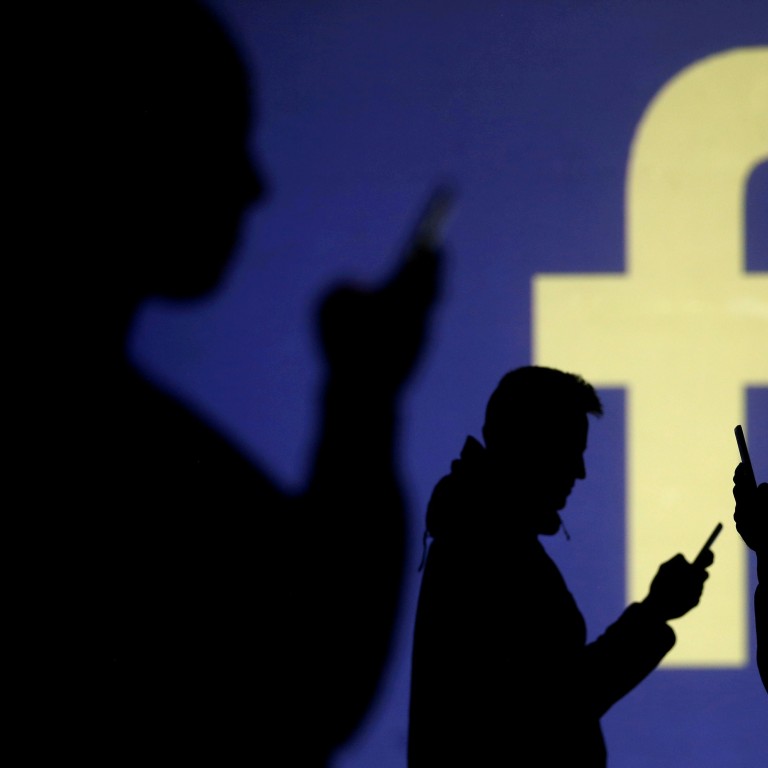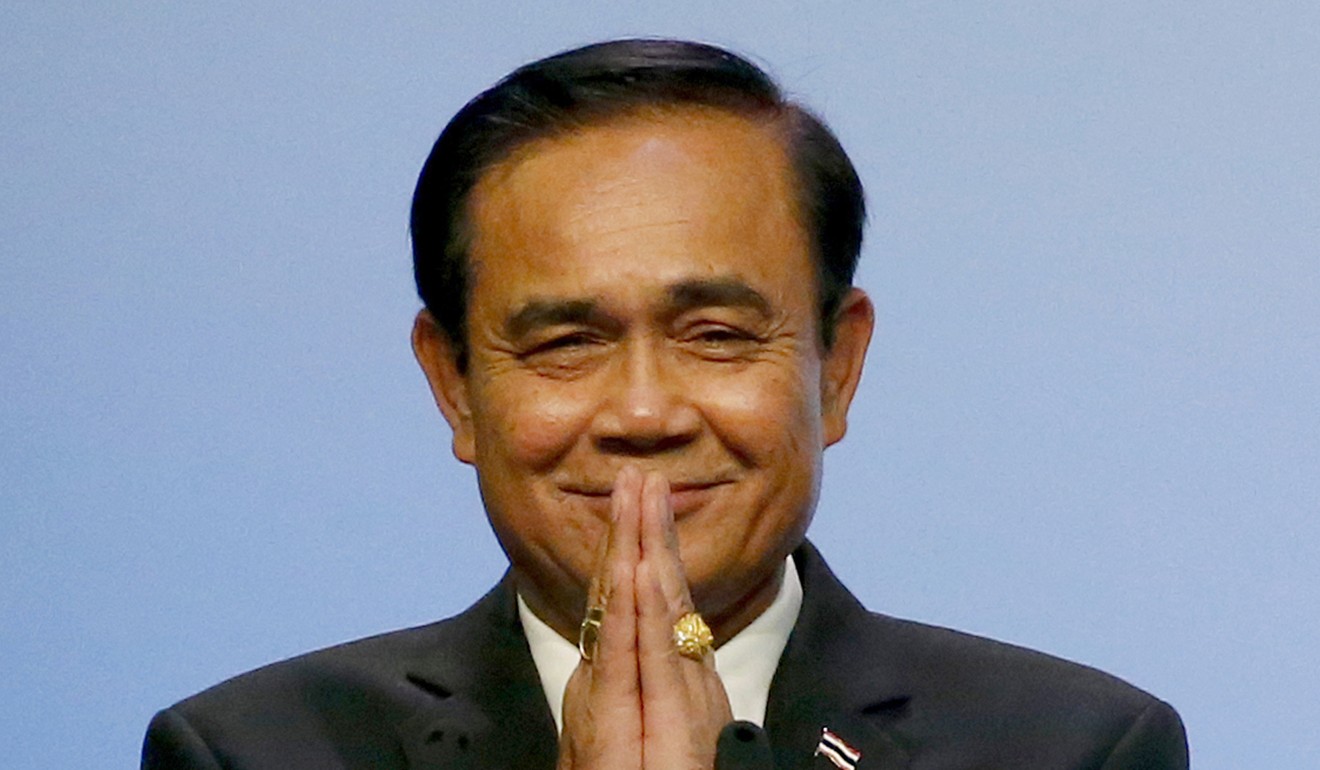
Facebook blocks foreign ads before Thai election amid fears junta will benefit
- The junta, led by Prime Minister Prayuth Chan-ocha, had asked Facebook to remove content on previous occasions
- There are concerns Facebook’s ban on electoral ads could hurt the more social media-savvy opposition
The social media site on Thursday said it has expanded enforcement in Thailand to protect “the integrity of elections while making sure people can have a voice in the political process”.
Facebook and its subsidiary WhatsApp have promised to get tougher on “fake news” that could influence this year’s elections in Asia.
The ban in Thailand is expected to take effect in mid-February and will apply to all electoral ads run by advertisers based outside the country. Both “automated and human review” will be used to identify the unwelcome ads.
“Learning from every election over the last two years, we have increased our capabilities to take down fake accounts, reduce false news, disrupt bad actors, support an informed and engaged electorate, and increase ads transparency,” said Katie Harbath, Facebook’s director of global politics and government outreach.
It would be interesting to know if Facebook acquiesced to a junta censorship request
The restrictions in Thailand will apply to foreign ads that “contain references to politicians, parties, ‘getting out the vote’ and/or election suppression”. Foreign ads with political slogans and party logos will also be blocked.
Last year, Facebook banned foreign groups buying ads related to an abortion referendum in Ireland. It also previously banned foreign election ads in Nigeria and Ukraine.
Thailand’s ruling junta faces its first general election since seizing power in a bloodless coup in 2014.
Facebook, Whatsapp target fake news for Asia’s election season, but is it too little, too late?
The military government last week imposed stringent restrictions on the use of social media campaigning. The crackdown was denounced by the opposition and youth groups.
The March vote is expected to be heavily influenced by young Thais. Voters aged 18-35 make up more than 25 per cent of the electorate of about 50 million. In 2017, the Thai junta threatened Facebook with legal action unless it removed posts critical of the monarchy but later backed down.
In 2016, Reuters reported Thailand’s military government tried to persuade Facebook to comply with court orders to remove content it considered harmful to peace and order. The government has also blocked thousands of websites hosting anti-monarchy content, according to the news agency.
“Thailand’s military regime has a minuscule social media presence compared to the democratic opposition and clearly recognises the upcoming election will be largely won or lost online,” said Shawn Crispin, the Southeast Asia representative at the Committee to Protect Journalists.
He pointed out that there could be as many as 6 million first-time voters at the upcoming polls.
Thailand sets March 24 as date of first election since Shinawatra coup
“This new generation is known to take its cues from social media influencers. Facebook’s ban on electoral ads will thus likely help the junta’s proxy party and hurt the more social media-savvy opposition,” Crispin said from Bangkok. “It would be interesting to know if Facebook acquiesced to a junta censorship request in making this decision.”
A Facebook spokesperson told the South China Morning Post the measures were not in response to any pressure or request from the junta.
“This is consistent with our approach to elections around the world. It is unrelated to a government request,” the spokesperson said.

Facebook recently announced it would roll out new election policies in India, which goes to the polls in April and May – and is Facebook’s biggest national market outside the US. The company said it would enforce tougher rules in India on political advertising and election interference.
The company at the time said it was looking into doing the same in other Asian nations, taking into account different threats and local laws. Facebook has 917 million monthly users in the Asia-Pacific, including 394 million in Southeast Asia.
Thai election: can Shinawatras keep it in the family, again?
“We now have more than 30,000 people working on safety and security across the company, three times as many as we had in 2017,” Harbath said in the statement. “We have dedicated teams working on every upcoming election around the world, including Thailand.
“Building on the work of the last few months and to better coordinate the work in the final weeks before elections in Asia-Pacific, we are planning to set up new regional operations centres, focused on election integrity, including one in Singapore.”

